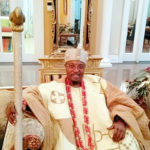In recent weeks, conventional and social media have been awash with articles about the impending election of the principal officers of the ninth National Assembly, slated for June 10, 2019. It has been a case of arguments as to the criteria for the exercise.
The points that have emerged, being canvassed as necessary preconditions for those to be elected include, personal merit of character, competence and integrity, federal character/zonal representation, freedom of members to elect their presiding officers, national interest, party loyalty, number of seats won by the parties in parliament, ranking of members, balance, equity and fairness; gender and age sensitivity, among others. All these criteria are reasonable and are not irreconcilable, but they must be put in the right perspectives and wisely moderated not to be counter-productive but to produce the desired results.
In the major democracies all over the world, principal officers of their legislatures are the conventional rights of the party with a majority in parliament. Nobody in the opposition parties, no matter how highly placed, ever tries to upset the apple-cart. The majority parties also pay due respect and regards to the opposition office holders like Minority Leader etc. That is why it is usually said that the minority will have its say and the majority its way.
It is the duty of the parties concerned to decide which of the party members get what position. Unfortunately, here in Nigeria, the majority was so mismanaged during the 7th National Assembly that an opposition party member emerged as the Speaker. The case of the out-going 8th Assembly was more nauseating when, through what normally was tantamount to anti-party activity and disloyalty, the Senate President and Speaker House of Representatives, both from the majority party, played a fast one to emerge against the party arrangement. The result was that the synergy expected between the Executive arm of government and the National Assembly was not manifest one hundred percent. Often, there were disagreements to the disadvantage of national interests.
That was why this time around the majority party took the bull by the horns to decide on who are to be Senate President and Speaker of the House of Representatives. Although, in taking such an initiative, the party concerned might not have adopted the best method to consult and lobby rather than sound like dictating. Nevertheless, the argument by the opposition of freedom of choice by the assembly members does not hold water. This is because members were nominated and put forward by their political parties. Since they were not independent candidates the freedom of the members cannot be exercised to the exclusion or outside party guidelines, which are based on their manifesto and programmes. It is incumbent on all members to respect their party guidelines and directives.
One final point is that any part of any zone should not take major positions in government and parliament to the exclusion of other parts. Ekiti State had won all the elections for the ruling party at the centre. What then is its gain? Care must be taken to be fair and equitable. Anything else will not be good enough and may portend division and danger for the ruling party.
Otunba Kunle Olasope,
Ekiti State.






